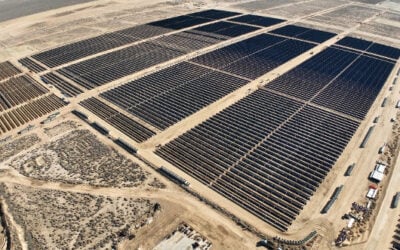Daderot. Creative Commons
Lawmakers in the US state of Massachusetts have passed a bill that could see targets set for the procurement of energy storage systems at utility level.
The new legislation recommends the state department of energy resources (DER) set targets for electric companies to procure “viable and cost-effective” energy storage systems by 2020.
The DER will also be allowed to consider new methods to “properly value energy storage systems”, and usage of “energy efficiency funds” to support residential energy storage systems that provide “sustainable peak load reductions on either the electric or gas distribution systems”.
If signed by Massachusetts Governor Charlie Baker, as expected, the DER will have until the end of the year to decide whether to impose the mandate on state utilities. In turn, electric utilities will have until July 2017 to adopt the targets, and the start of January 2002 to comply with them.
Try Premium for just $1
- Full premium access for the first month at only $1
- Converts to an annual rate after 30 days unless cancelled
- Cancel anytime during the trial period
Premium Benefits
- Expert industry analysis and interviews
- Digital access to PV Tech Power journal
- Exclusive event discounts
Or get the full Premium subscription right away
Or continue reading this article for free
The legislation states: “Not later than 1 January, 2020, each electric company entity shall submit a report to the DER demonstrating it has complied with the energy storage system procurement targets and policies adopted by the department.”
Lawmakers have recommended the DER establishes a carbon reduction research centre, at the University of Massachusetts, to develop new initiatives around energy storage technology, as well as fuel cells, clean energy programming, domestic energy production, and cleaner use of fossil fuels.
California and Oregon are the only US states to have set mandates on energy storage procurement. The California goal of 1.325GW energy storage capacity by 2020 has seen California lead the way in residential and commercial storage.
Late last year, California also passed a law requiring the state to source 50% of its energy from renewable sources by 2030.
The California Public Utilities Commission said last month the state had hit its target for solar capacity a year early, having installed 1.753GW already, against a 2017 target of 1.75GW, with another 139.7MW in waiting.





